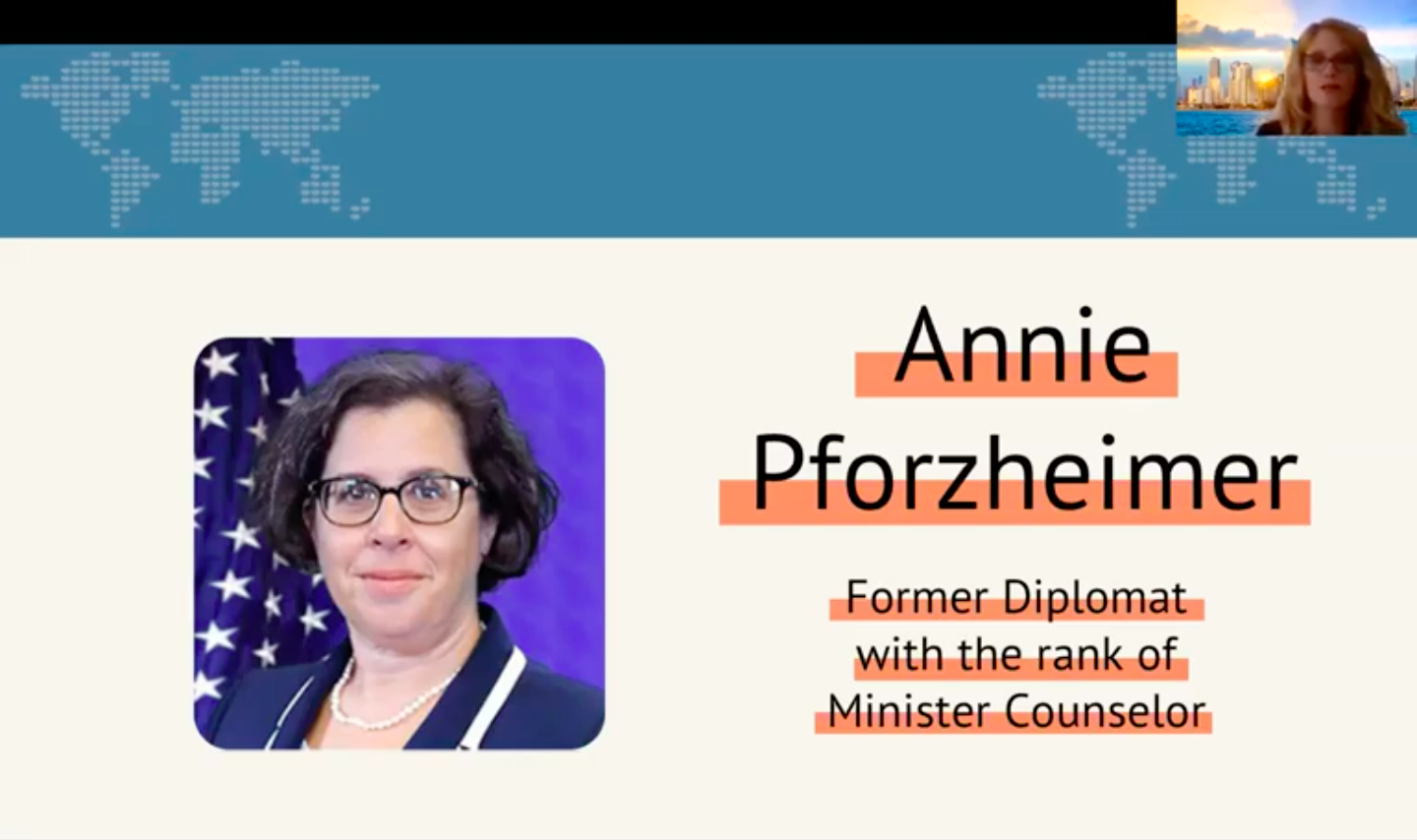
It was a pleasure hosting Annie Pfozheimer for such an insightful and relevant event. Special thanks to congresswoman Susan Davis for her opening remarks and to San Diego State University’s Center for Advancing Global Business for co-hosting the event.
Congresswoman Susan Davis opened with her personal experience during her numerous visits to Afghanistan. She expressed that during her first visit in 2002, she was impressed with the women working with education during the Taliban, however after elections, the Taliban has emboldened and they seem to be moving backwards with women’s issues.
In her lecture, Annie Pforzheimer explored the theory that although the U.S.-Afghan partnership was one forced after the events of 9/11, it is one that is valuable to both sides. She first explored the history of U.S.-Afghanistan relations including a period of U.S. overconfidence after 9/11 and the return of the Taliban. Between the international and U.S. money going into the country and corruption, relationships were darkened. Even after a new administration in 2009, a surge in troops, and the Southeast Asian strategy that had initially pleased Afghan leadership and started addressing issues of corruption, the fighting continued.
By 2019, Pforzheimer explains that although both U.S. political parties were in favor of wanting our troops out, there was a division, reflected in congress, when asked if it is okay to sacrifice women’s rights in order to withdraw troops. At that point he U.S. acknowledged that including the Afghan government in negotiations was not working and decided to negotiate with the Taliban alone. “There were four areas to address,” Pforzheimer explains, “the first two were essentially between the U.S. and the Taliban – departure of U.S. forces and the Taliban’s assurances that afghan wouldn’t be used as a base recurrence. The other two are a permanent ceasefire, and internal talks between Afghan parties on a political roadmap for the future.” Unfortunately, this agreement fell apart, but after more rounds of diplomacy an agreement over the first two items was made and the agreement was conditions based. Pforzheimer stressed the importance of continuing to support Afghan civil forced because their economy is not strong enough to support their own security. Ultimately, she described Afghanistan as a friend with whom we share interest. “Our alliance there and ability to extend our national security goals is something worth protecting,” Pforzheimer says.



Leave a Reply